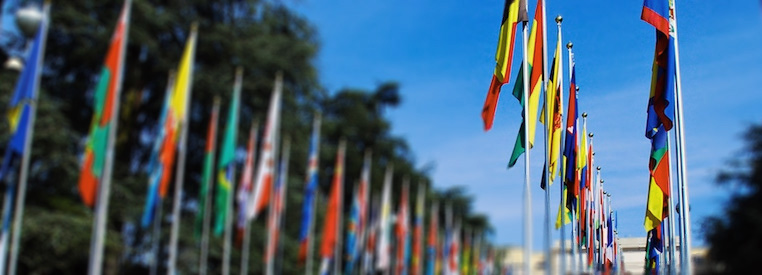On 23-24 May 2007, governmental representatives from 30 countries gathered in Madrid, SPain, at the invitation of the Foreign Minister of Spain, for the thirtieth annual colloquium on human rights policy.
Colloquium 2007 | Madrid, Spain | Agenda
Skip to a section:
- UN Human Rights Council Reform
- UN Human Rights Council Reform (ctd)
- Legal empowerment of the poor
- Human rights in situations of conflict: Whither the Responsibility to Protect
I. UN HUMAN RIGHTS COUNCIL REFORM
What are the relative strengths and weaknesses of the Council compared to the Commission?
Are the underlying causes of the poor early performance of the Council so far to be found in the membership, the general geopolitical climate, the mandate in Resolution 60/51, or elsewhere?
Is the Open-ended Working Group to develop the modalities of the Universal Periodic Review (UPR) mechanism on the right track?
What should be the role of the OHCHR and of outside experts in the process?
What can states do to make the UPR meet the objectives set out in Resolution 60/51, e.g. funding new staff, support original methods of operation, etc.?
How can independence, objectivity and expertise of the Special Procedures be assured?
What are appropriate conditions of admissibility for complaints, factual assessment, and decision on the merits?
What measures should be available for complaints deemed to be well-founded?
Do NGOs have adequate access to the Council and what changes, if any, are called for?
How can we make legal protection and economic opportunity not the privilege of the few b ut the right of all?
What policies have worked to provide the poor with access to the legal system?
To what extent are property rights human rights, and how does the international human rights system deal with property rights?
What are the human rights strategies for reducing poverty in the informal economy?
How can human rights assist the poor in gaining access to property rights, assets, and capital?
How successful has the International Commission on the Legal Empowerment of the Poor been in addressing these issues?
IV. HUMAN RIGHTS IN SITUATIONS OF CONFLICT: WHITHER THE RESPONSIBILITY TO PROTECT
What is the content and current applicability of norm of the Responsibility to Protect, as articulated in paragraphs 138 and 139 of the 2005 Summit Outcome document?
Since NATO’s military action in Kosovo, what has been the experience with efforts by the international community to intervene or stop acts of genocide, war crimes, ethnic cleansing and crimes against humanity?
Specifically, how can the concept of the Responsibility to Protect be applied to the case of Darfur?
What lessons can be learned from the work of and the Council’s response to the High-Level Mission on the situation of human rights in Darfur purusant to Human Rights Council decisions S-4/101?
What are the impacts of the changes in the peacekeeping and peacebuilding components of the UN on concern for human rights in conflict and post-conflict situations?
